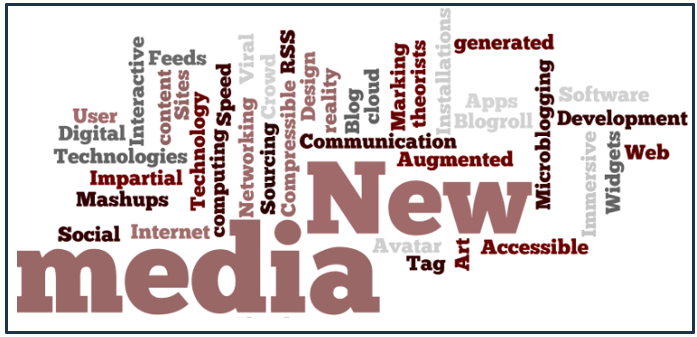Neenah Payne’s article “This Is A Major Turning Point Now!” emphasizes the significant transformation in information dissemination and power dynamics stemming from recent socio-political events. The past four years, particularly the lead-up to the 2024 presidential election, have underscored a shift away from traditional legacy media, as audiences increasingly seek alternative news sources. Historically, mainstream media held a monopolistic grip on public perception, mostly providing content aligned with governmental narratives, particularly favoring the Democratic Party. This lack of objectivity has eroded trust and credibility, pushing citizens towards alternative or “alt” media channels. The pervasive influence of legacy media, encapsulated by the catchphrase “Brought to you by Pfizer”, illustrates the extent to which corporate interests have driven information agendas, leading many to question the integrity and impartiality of established news outlets.
The decline of legacy media is also noted by influential industry figures, including Jeff Bezos, who has acknowledged its waning authority. Reports from outlets like The New York Times suggest that the legacy media must now compete with a model that allows individuals to curate their media experiences. The invigorated assertion that “You are the media” encapsulates a growing sentiment, particularly among right-leaning influencers, that traditional news is no longer the primary source of information. Major media figures and platforms, like Joe Rogan, have emerged as alternative sources that give voice to previously marginalized discussions, drastically altering how political narratives develop and gain traction among the public. The implication is clear: the mainstream media’s impact on elections is diminishing as audiences migrate towards a more individualized and potentially biased media landscape.
Del Bigtree, a prominent figure in the alternative media sphere, presents the 2024 election as emblematic of the ongoing conflict between legacy media and newer platforms. Under the former Fairness Doctrine, media outlets were obligated to present multiple viewpoints, but the current landscape has abandoned this precept, leading to biased reporting that favors select narratives. As Trump and other political figures engage with audiences through platforms like social media and podcasts, the legacy media’s ability to control the narrative is increasingly challenged. Data from recent elections supports the assertion that mainstream media has lost its dominance, as evidenced by the surge in alternative media viewership. This shift not only reflects a change in audience trust but also signals greater engagement with candidates who bypass traditional media filters.
With the election outcomes highlighting a struggle for public allegiance, Bigtree’s analysis suggests that the new media landscape is equipped to inform voters more transparently. He highlights that legacy media outlets have lost control over political narratives and are grappling with an identity crisis in their relevance, which is exacerbated by the lack of bipartisan reporting. Figures like Vice President Kamala Harris, who candidly expressed skepticism toward absolute free speech, raise important questions about the media’s role in shaping public discourse. With traditional channels expressing bias and lacking in comprehensive coverage, many voters turned to alternative sources for information, underscoring a larger trend of disillusionment with conventional journalism.
Furthermore, the discussion pivots towards health governance, particularly with the nomination of Robert F. Kennedy Jr. to the U.S. Department of Health and Human Services by President Trump. This appointment symbolizes a radical departure from mainstream health policies that have dominated the COVID-19 narrative and reflects an ongoing critique of government and corporate health strategies. Concerns arise regarding the safety and efficacy of COVID-19 vaccines, with various public figures, including Dr. Robert Malone, discussing the negative impacts of rushed vaccine deployments and the suppression of alternative treatments. The denial of informed consent toAmerican citizens, particularly regarding vaccination protocols, raises ethical questions anchored in historical precedents like The Nuremberg Code.
The focus on alternative perspectives in health policy illustrates a contentious departure from established practices, further fueled by complaints about corporate influence in healthcare decisions. Prominent figures, including Bill Gates, have faced scrutiny regarding their roles in public health crises and vaccine commercialization. The legacy media’s silence on critical viewpoints, especially regarding vaccine-related injuries, becomes increasingly questionable against this backdrop. Dr. Malone’s warnings and contributions to the discourse around health and vaccine safety signal a broader movement advocating for transparency and alternative health advocacy, challenging the entrenched narratives upon which the legacy media has relied.
In summary, “This Is A Major Turning Point Now!” highlights seismic shifts in how information is consumed and shared, particularly in the political and healthcare arenas. As legacy media confronts a loss of influence amidst the rise of alternative platforms, the power dynamics regarding public discourse are shifting dramatically. The contentious relationship between mainstream narratives and emerging voices fuels ongoing discussions about health policy and ethical journalism. The implications of these trends suggest that future engagement will require critical scrutiny of all sources of information, as the population continues to navigate these complex intersections of power, influence, and individual autonomy in a rapidly evolving landscape.

